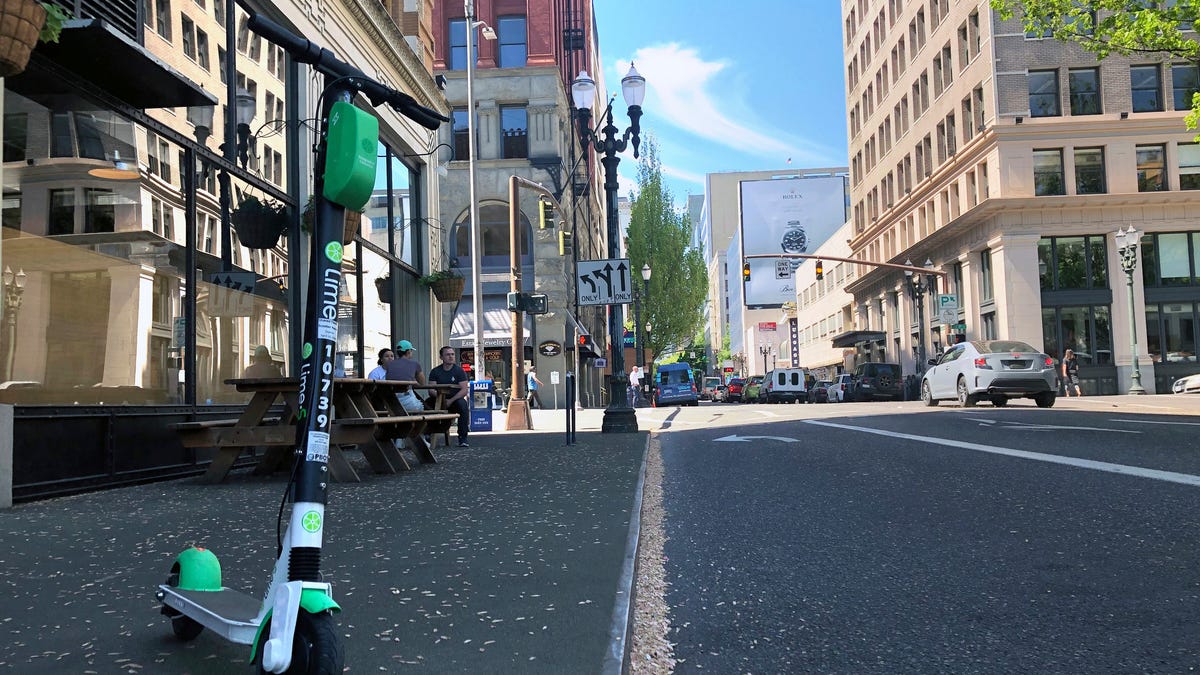You Lost How Much on Scooters? - 4 minutes read
 You Lost How Much on Scooters?
You Lost How Much on Scooters?Lime, the company whose business model is buying thousands of electric scooters and just sort of leaving them there in the hopes people will ride them, is on track to lose $300 million this year.
Per a report in the Information, financial projections that are the “first detailed picture to emerge of Lime’s financial performance” show the company is set to lose the $300 million on revenue of over $420 million. Lime is losing so much money in large part due to “depreciation of its scooters and how much it costs to run warehouses that repair and position the vehicles,” with its fleet of 120,000 scooters seeing an average life of five months. That, of course, is exactly the kind of costs that would arise from leaving countless expensive scooters exposed to the elements and residents angry about said scooters.
Lime projects that next year gross revenue will increase to over $1 billion, and that efforts to improve the sturdiness of their scooters will cut operating losses in half, the Information wrote. But the 2019 figures have kept some potential investors wary of Lime’s losses from joining an effort to raise half a billion dollars in new equity capital, while the “investment climate for money-losing consumer businesses has cooled since Lime last raised funds in January” due to disastrous IPOs by Uber and Lyft and the ongoing WeWork mess.
While points in its favor include an agreement to bring on another lead investor that would slightly pump its $2.4 billion valuation and aggressive overseas expansion, the Information also reported that some investors have concluded the company loses virtually every penny it puts into scooter purchasing to scooter losses, repair, and charging.
Increasing the lifespan of the scooters is critical because the entire business model relies on them lasting long enough to generate a profit on acquisition costs, as well as other expenditures like regulatory compliance and payment processing. The long-term sustainability of the micromobility business in the U.S. may also be dependent on other uncertain factors, such as whether cities effectively encourage use of such services over cars. The opposite may end up happening. Recent reporting has emphasized that officials in many cities have become wary of the widespread backlash to scooters piling up on streets and high rates of injuries from the devices, in many cases due to irresponsible riders.
Lime is currently testing its Gen 3 scooter, which was delayed due to high repair costs in June, according to the Information, as well as exploring how to reduce costs by positioning scooters in higher-traffic areas and investing in batteries that can be swapped out more easily. Lime President Joe Kraus told the Information the company believes its new scooters will last longer than a full year, adding “The way this business looks in 2020 is materially different. A longer-lasting vehicle has a compounding effect on the expense profile of the business.”
In July, the Information separately reported that competitor Bird had lost nearly $100 million in Q1 2019 “while revenue shrank sharply to only about $15 million”; sources told the site it only had about $100 million in the bank despite raising some $700 million. The company offered a similar explanation that it had expected “old retail scooters” to last longer. Earlier this month, however, it announced it had raised an additional $275 million and was focusing on profitability above the growth-at-all-costs model pioneered by Uber.
Source: Gizmodo.com
Powered by NewsAPI.org
Keywords:
Business model • Electric motorcycles and scooters • S-300 missile system • Finance • Company • Revenue • Lime (material) • Money • Depreciation • Maintenance, repair, and operations • Vehicle • Scooter (motorcycle) • Scooter (motorcycle) • Investment • Calcium carbonate • 1,000,000,000 • Equity (finance) • Investment • Climate change • Money • Consumer • Business • Calcium carbonate • Initial public offering • Uber (company) • Lyft • WeWork • Investor • Economic growth • Company • Scooter (motorcycle) • Scooter (motorcycle) • Business model • Profit (economics) • Mergers and acquisitions • Cost • Cost • Regulatory compliance • Sustainability • Business • Factors of production • Service (economics) • Scooter (motorcycle) • Scooter (motorcycle) • Joe Kraus • Information • Revenue • LSWR S15 class • Bank • Company • Profit (accounting) • Uber (company) •